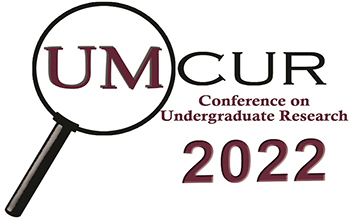The Response to Anthony Benezet: Public and Private Political Reactions to an 18th-century Abolitionist
Project Type
Presentation
Faculty Mentor’s Full Name
Claire Arcenas
Faculty Mentor’s Department
History
Abstract / Artist's Statement
Quaker Anthony Benezet was one of the most prominent abolitionists of his time. Over 80 years before the 13th Amendment outlawed enslavement in the United States, Benezet was working towards a free nation. He founded schools for marginalized groups, lobbied for the end of slavery, and wrote many pamphlets against the practice. His work established him as a revolutionary, influential figure. Benezet took leaps to speak about the cruelty and disgrace of enslavement.
He expressed these opinions to powerful figures of the late 18th century in letters and literature. These figures had different judgments on Benezet’s philosophies and responded to his work in a variety of ways. People reacted to Benezet in direct and indirect methods. Some even ignored Benezet’s straightforward pleas for abolition. The public knowledge of Benezet also changed as the Abolitionist movement grew. His work became a relevant piece of early American politics.
I examine letters, pamphlets, and newspapers to decipher the original responses to Anthony Benezet. We can revisit the clear, immediate reactions Benezet received. I will also discuss legal papers and political actions. These documents can show insight into the indirect reactions. People who did not reply to Benezet could have shown their true opinions in these actions. I will analyze the context and actions of these responders.
The reactions to Benezet’s work provide insight into the politics of early abolition. We can see pieces of the true interactions between abolitionists, the government, and the public. These correspondences discuss the passionate and dire nature of slavery. They also provide a perspective on the realities of political philosophy during the early 18th century.
Category
Social Sciences
The Response to Anthony Benezet: Public and Private Political Reactions to an 18th-century Abolitionist
UC 332
Quaker Anthony Benezet was one of the most prominent abolitionists of his time. Over 80 years before the 13th Amendment outlawed enslavement in the United States, Benezet was working towards a free nation. He founded schools for marginalized groups, lobbied for the end of slavery, and wrote many pamphlets against the practice. His work established him as a revolutionary, influential figure. Benezet took leaps to speak about the cruelty and disgrace of enslavement.
He expressed these opinions to powerful figures of the late 18th century in letters and literature. These figures had different judgments on Benezet’s philosophies and responded to his work in a variety of ways. People reacted to Benezet in direct and indirect methods. Some even ignored Benezet’s straightforward pleas for abolition. The public knowledge of Benezet also changed as the Abolitionist movement grew. His work became a relevant piece of early American politics.
I examine letters, pamphlets, and newspapers to decipher the original responses to Anthony Benezet. We can revisit the clear, immediate reactions Benezet received. I will also discuss legal papers and political actions. These documents can show insight into the indirect reactions. People who did not reply to Benezet could have shown their true opinions in these actions. I will analyze the context and actions of these responders.
The reactions to Benezet’s work provide insight into the politics of early abolition. We can see pieces of the true interactions between abolitionists, the government, and the public. These correspondences discuss the passionate and dire nature of slavery. They also provide a perspective on the realities of political philosophy during the early 18th century.
